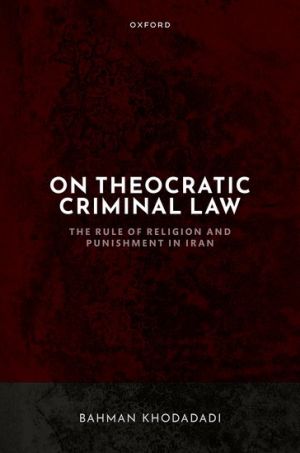
On Theocratic Criminal Law explores the roots and structures of the criminal law system of the world's most prominent constitutional theocracy, the Islamic Republic of Iran.
While discussing the processes of forced de-westernization and de-modernization which occurred in the wake of the Islamic Revolution, this work examines how the Islamic conception of civil order and polity has been established within the legal and theological framework of the Iranian Constitution. The book engages in a process of 'rational reconstruction' of Iranian theocratic criminal law and offers a critical analysis of the way criminal law functions as the centrepiece of this mode of political domination. It illuminates how this revelation-based, punitive ideology functions, how the current Islamic Penal Code (IPC) mirrors prevailing Shiite jurisprudence, and ultimately, from what sort of fundamental defects theocratic criminal law in Iran is suffering.
This work provides a critical assessment of the criminalization and sentencing theories that have stemmed from the shariatization (Islamization) of all law in the wake of the Islamic Revolution of 1979. By embarking upon a typology of punishment in Shiite Islamic jurisprudence and the Iranian Islamic Penal Code the book then provides a systematic critical analysis of the three types of punishment stipulated in the Iranian Penal Code, namely ta'zir, hadd, and qisas. It also explores the jurisprudential principles and dynamic power of Shiite Islam not only as a driving force behind political and social change but as a force that has been capable of forging a whole theocratic legal system.